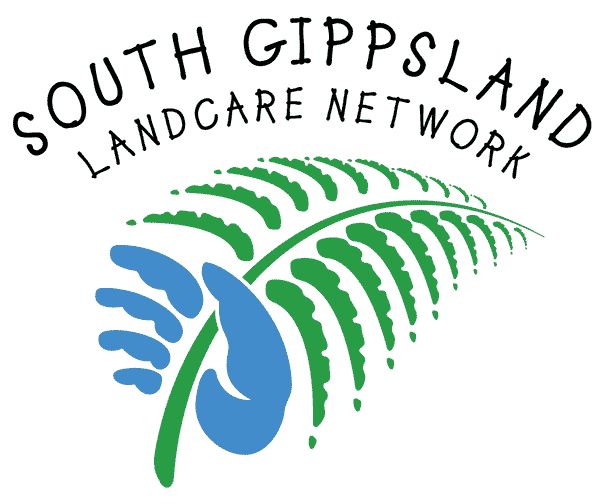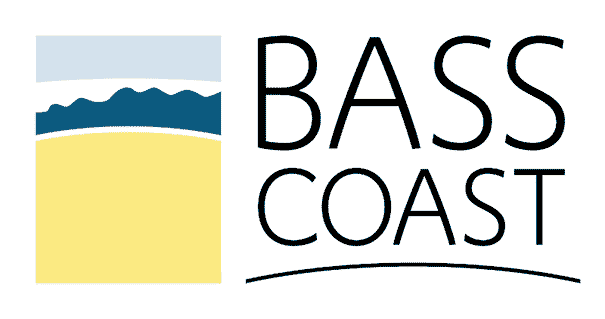Nadine and Clive Verboon: Our Story
Wattlebank Park Farm has been operated by Nadine and Clive Verboon since 2003. The 200 acre farm is located in a flood prone area, which informs much of the decision-making by the Verboon’s. They run a mixed farm and they have introduced innovative marketing practices for their produce, including direct selling and promoting narratives about their projects.
Our Vision
“Our farm is unique in the way that we run and manage it. So we run multiple animals, multiple species on the property. A lot of them are grass fed. It also helps with the biodiversity in the ground. We use a lot of rare breed animals as well. So the flavour that we get from our products is very different to your commercialised stuff you would buy from a supermarket.
Basically, we look at ourselves as custodians of this piece of property. So, we want to hand it off actually better than what we got it, so looking after it is in our best interests and best interests of our kids and their future as well.”
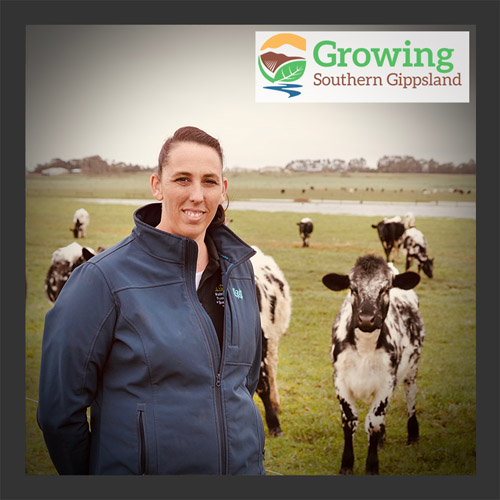
Enterprise: Mixed Grazing - Beef and Dairy Cattle, Pigs and Chickens
Business Name: Wattlebank Park
Locality: St Clair
Catchment Management Region: West Gippsland
Landcare Network: Bass Coast
LGA: Bass Coast Shire Council
Landform: Gippsland plains - Flood prone
Soil Type: Grey clay podosols
Annual Rainfall Average: 908.1 mm or 35.8 inches (Source- Bureau of Meteorology)
Our Enterprise
Milking a herd of 75 Jersey Fresian x cows, Wattlebank Park Farm aims to reduce the amount of impact caused by traditional dairy farming. They changed their dairy farm to mixed farming to achieve this goal.
“We started life as a dairy farm. So, in 2003 we purchased the farm and were just running dairy. Then we slowly added different animals because we wanted to actually grow our own food, so pigs, sheep, British white beef. Then in 2012 we lost our whole farm underwater and had to really think about where we were going to go. “
“The obvious choice for us was to start building up the animals that were lighter on the country. Looked at how we could manage it to still include the dairy, still include the beef, but withstand the different climatic changes that we had been given.”
Following the 2012 flood, and as part of the shift of focus, Nadine direct sells all their products to local quality food outlets, restaurants and farmer’s markets.
“We had to shut down the dairy for five and a half months and work out what we wanted to do and from there we fully changed direction and we reduced our cow numbers for our dairy, increased our beef numbers, increased pigs and started direct selling all our products. So 2013 we launched Wattlebank Park Farm, the butchery side of everything.”
Our Challenges
A major challenge the Verboon’s face is the variation in rainfall. They are experiencing very wet years with major parts of the property under water, and really dry years. They need to be prepared for both
“Our farm is low-lying, and as we have been flooded out before. We need to be prepared for it to happen again. One way that we prepare is to put away as much silage as we can, to give us back-up feed. We also have issues with salinity, at the bottom of the hill.”
“A major challenge we face is the variation in rainfall. We are having more really wet years and really dry years, so we need to be prepared for both.”
Regulation and transport are factors to consider.
“When you direct sell your product you have all the responsibility of finding a market, selling it, understanding the regulations and rules for that specific product and then you've obviously got to deal with your customers and transport and production. So you're not just the farmer anymore; you are in retail, you are the accountant, you are every single aspect.
“I transport all our pigs to the abattoirs …So, I take a trailer load behind my little car and off we go. [And, the beef and sheep go to a distant abattoir.] So all our cows and lambs go up there. So, we've got a truck driver who takes a load of stuff up to there for us.”
Our Landscape Activities
After the flood, Nadine took steps to document the seasons.
“I've got photographic documentation of the seasons, which is a different way of looking - you've got all your statistical stuff, which the Weather Bureau and all that has, but the actual physical photos of how everything is changing. I always use the different lights of the day to take photographs.”
They do regular soil testing.
“Every couple of years … We're now using Jim to manage everything. He actually comes out to the farm. We go for a drive around the property, have a look, see what paddocks are doing ... We will do one this year, we will do a soil test this year to see where we are … A lot of it is really balancing sort of what's happening in the paddocks.”
“The soil biology is so much better than when we were commercially farming. We’re always looking to better ourselves with what we're doing. So we use a lot of natural fertilisers now, pushing away from the standardised things. We're questioning what's important.”
Our Practices and Successes
Weather events are an on-going concern and the Verboon’s are having successes.
“The way that the farm works now is more suited to a varying climate than it was before through the way that you're stocking and grassing and ... to be able to keep this place going and manage these extremes in weather patterns.”
“We're having to do less and less maintenance work because we're working on our ground and our soil and getting everything right in that way. So we're not opening that ground up, so we haven't got as much dirt patches on the farm and looking at things in a completely different way than what we were when we were full blown commercial dairy farming.”
Sharing
Nadine and Clive both talk with others and learn.
“So with my husband's concreting business he goes to a lot of different farms and works on cow sheds and bits and pieces. So he sort of talks to a lot of different people that way. Then myself through the farmers' markets we talk to other producers and that about what they're doing and we swap ideas and contacts and bits and pieces.”
Websites
www.wattlebankparkfarm.com/
www.wattlebankparkfarm.com/blog
www.facebook.com/WattlebankParkFarm/
instagram.com/wattlebank_park_farm
Images
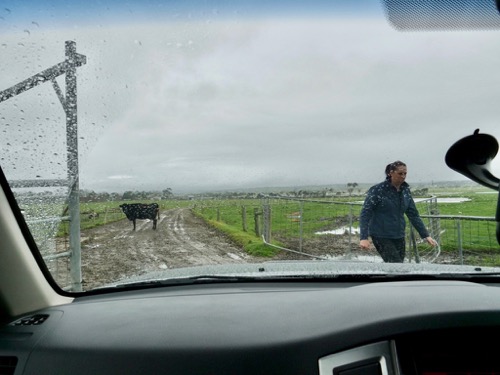
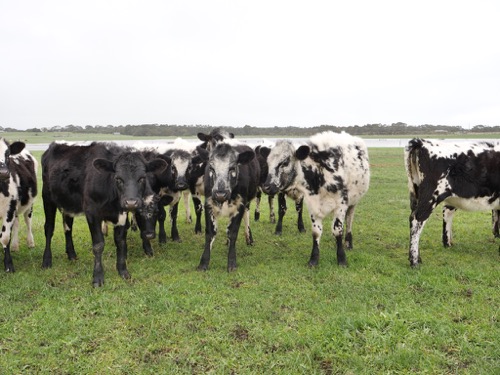
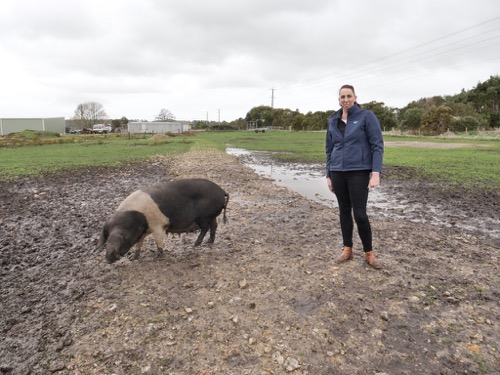
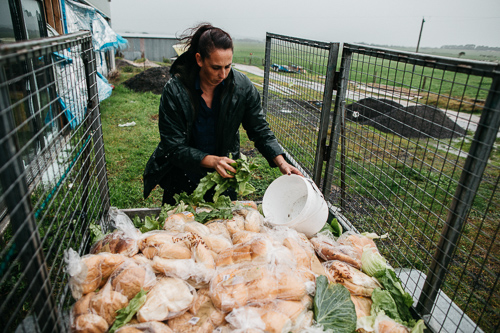
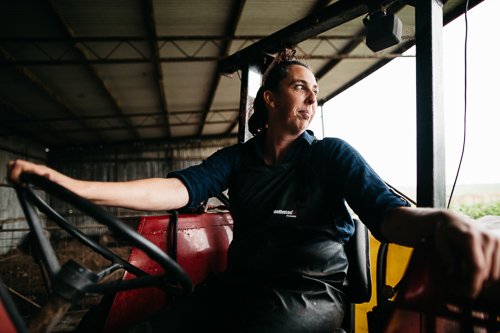
Archive Video (2016)


